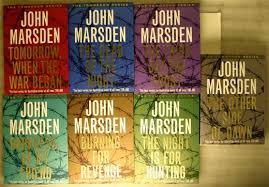Who do you translate for?
From an article in Full Tilt, a journal of East Asian poetry, translation and the arts, some wise words from Harold Goldblatt, who "all but single-handedly introduced contemporary Chinese-language literature to the English-speaking world".
Who do you translate for?
I believe first of all that, like an editor, the translator's primary obligation is to the reader, not the writer. I realize that a lot of people don't agree, especially writers. I don't think that these things have to be mutually exclusive, but I do think that we need to produce something that can be readily accepted by an American readership. Ha Jin can get away with writing unidiomatic English and many people are charmed by it, but a translator's English is expected to be idiomatic and contemporary without being flashy.
What are some of the problems specific to translating from Chinese into English?
Not knowing Chinese well enough, not knowing English well enough. Actually, not knowing Chinese well enough isn't a big problem—you can always ask someone. You can ask your author, you can ask your friends. No, the thing that's really killing translation in our field is literalism. Too many translators are afraid of the text, especially when they're first starting out. And I understand that, because I was too. They're all afraid of the text. You need to overcome your fear of the text, put some distance between you and it. You have to because Chinese and English are so different. Take the use of the passive voice, for example, which just runs through the Chinese language. Five different agents for the passive voice! We only have one. And the Chinese use it all the time. It is part of the language, part of the way they express themselves. But if you use it that much in English—God!
So how do you handle linguistic problems like this?
My watchword is: did the Chinese writer write it that way for a particular purpose or did his language dictate it be that way? If it's the latter, then I put it into whatever my language dictates it should be. If I assume that it's idiosyncratic, that the author was trying to defamiliarize the text, to slow the reader down, then I try very much to capture that.
Fear of the text and literalism go hand in hand, don't they? And the translation suffers.
The Chinese novels that get translated without any care about good writing turn out to be crappy reads. They're often done by junior academics who have no feel for English, and who spent all of their time, as you and I did, learning how to speak and read Chinese. We didn't have time for anything else. I've spent all those years since then trying to catch up by reading good stuff in English. But many young academics don't have the time, and then they go to translate something, and they can't handle it—they believe in being literal. They read everything that comes out in Chinese—they read it all. And I want to say, “Stop! Don't read it all. Read something else. Get a sense of what English ought to be.”
In fact, as with all this extract from the article, the words on “problems specific to translating from Chinese into English” apply to all language pairs; only the specific examples may differ. Here's an analagous example of a question about sentence length in translating from Spanish into English
Labels: journals, literature, translation strategies, translation theory




1 Comments:
Thanks for the great blog. I have referenced you on my fiction review site in the past (and you are on my blog roll).
I just thought I would bring up a translation issue (or possibly a typographical error, though I suspect not) in the latest Spanish-language book I read in translation: The Flanders Panel by Arturo Perez-Reverte. Estoy seguro que el autor conoce bien la musica que aparace in sus libros. However, page one has protagonist Julia listening on her stereo to Michael Edges. As I say on my blog, the late and brilliant Mr. Hedges has never been edgier.
Apologies for my primitive Spanish and lack of accent marks, and best wishes,
Jim
http://nearlynothingbutnovels.blogspot.com/
http://greenchemistry.wordpress.com/
Post a Comment
<< Home